Most works of art, like most wines, ought to be consumed in the district of their fabrication
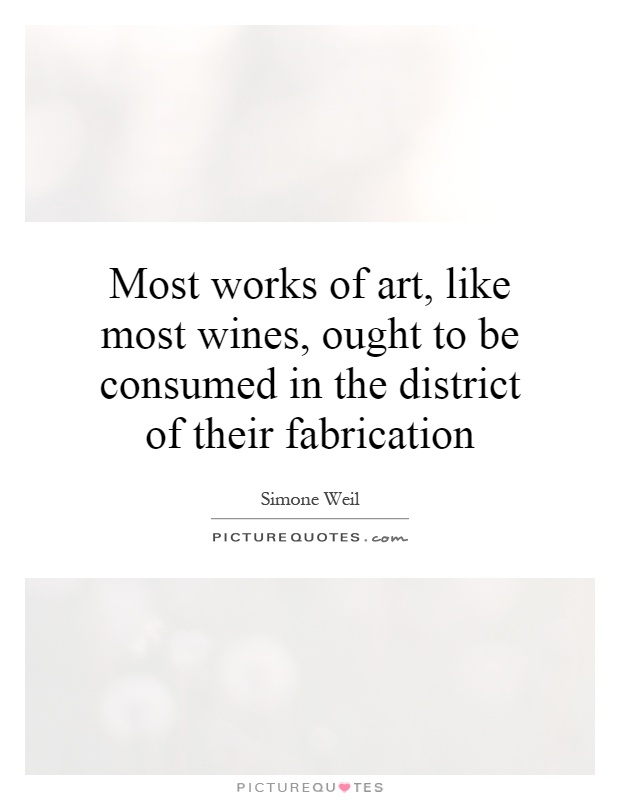
Most works of art, like most wines, ought to be consumed in the district of their fabrication
Simone Weil, a French philosopher, mystic, and political activist, believed in the importance of experiencing art and culture in their original context. She argued that most works of art, like most wines, ought to be consumed in the district of their fabrication. This statement reflects Weil's belief in the authenticity and integrity of art, and the importance of understanding the cultural and historical context in which it was created.Weil believed that art is deeply connected to its place of origin, and that experiencing art in its original context allows for a deeper understanding and appreciation of its meaning and significance. Just as a wine's flavor is influenced by the soil, climate, and traditions of the region where it is produced, so too is a work of art shaped by the cultural, social, and political context in which it is created. By consuming art in the district of its fabrication, one can better understand the artist's intentions, influences, and the societal issues that may have inspired the work.
Weil's belief in the importance of consuming art in its original context also reflects her broader philosophy of attention and empathy. She believed that true understanding and connection with others requires a deep level of attention and empathy, and that experiencing art in its original context can help cultivate these qualities. By immersing oneself in the culture and history of a particular place, one can develop a greater sense of empathy and understanding for the people who created the art.
Furthermore, Weil believed that consuming art in its original context can help preserve and protect cultural heritage. By supporting local artists and cultural institutions, one can help ensure that art and traditions are passed down to future generations. Weil saw art as a vital part of human culture and believed that it should be valued and protected for its ability to inspire, educate, and unite people across time and space.


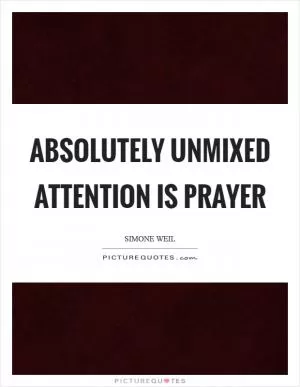
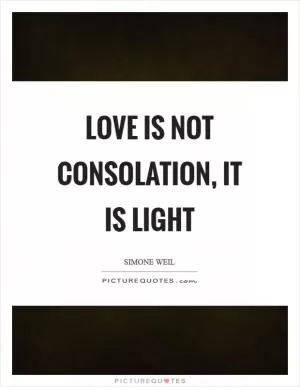

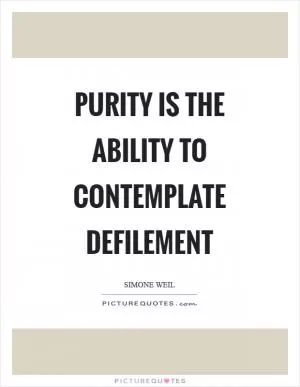
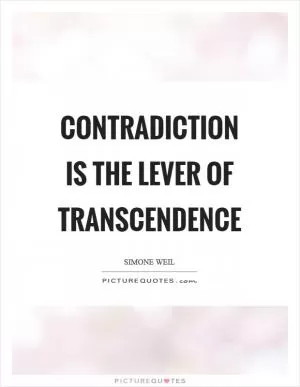
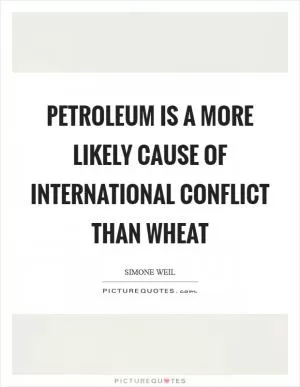
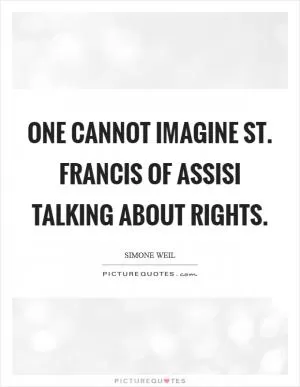

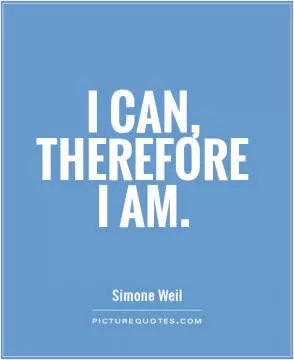

 Friendship Quotes
Friendship Quotes Love Quotes
Love Quotes Life Quotes
Life Quotes Funny Quotes
Funny Quotes Motivational Quotes
Motivational Quotes Inspirational Quotes
Inspirational Quotes